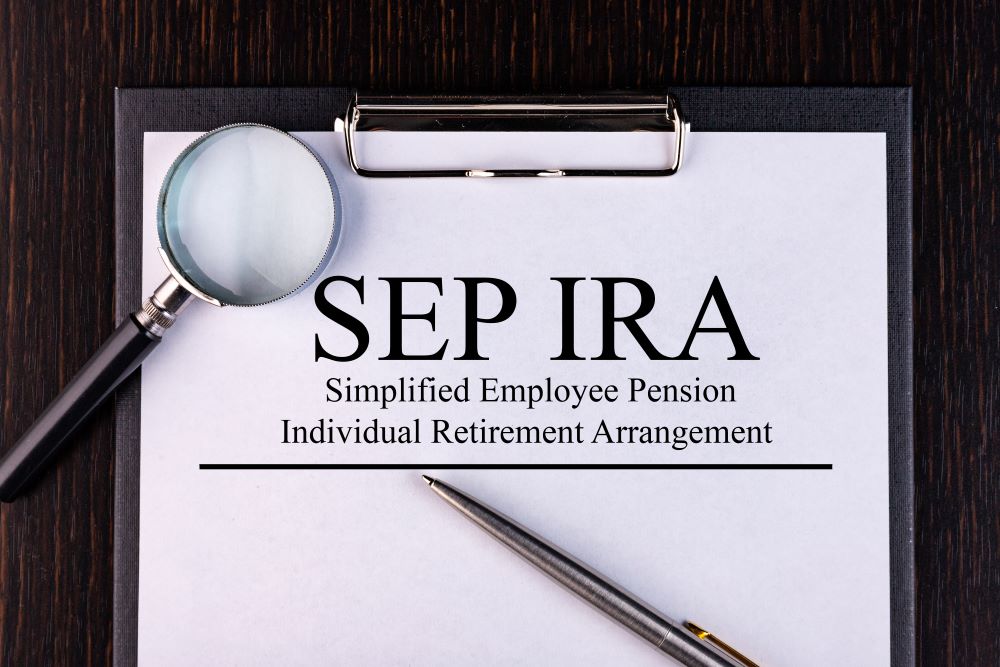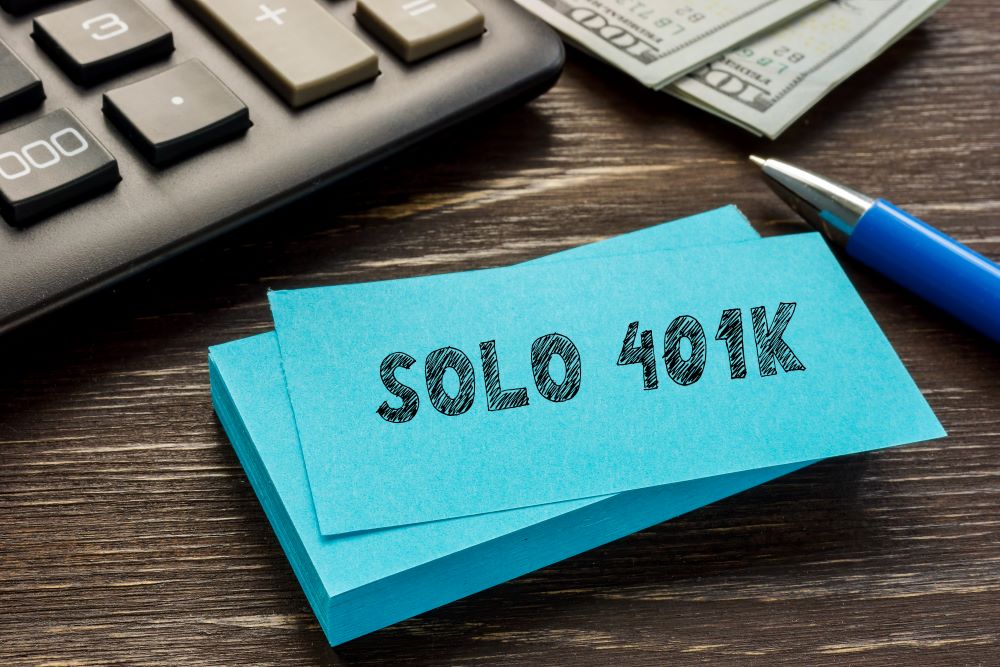
Planning for retirement is typically a pivotal financial step for everyone. However, it holds unique significance for business owners who are charting their path to retirement while simultaneously running and growing their businesses. When exploring retirement accounts for business owners, you’ll find several creative options beyond standard IRAs. Some of these options include a Self-Directed IRA, Solo 401(k) and a Simplified Employee Pension (SEP) IRA. Each account offers its own distinct features and benefits. Understanding how the accounts differ can help you identify the one that best aligns with your retirement and business goals.
A Self-Directed IRA (SDIRA) stands out for its exceptional flexibility. While standard IRAs are typically limited to Wall Street products like stocks and bonds, SDIRAs offer a more extensive array of investment opportunities. You can diversify your portfolio by investing in alternative assets such as real estate, cryptocurrency, private equity, and more. Anyone can open an SDIRA as a Traditional or Roth IRA. If you choose to setup an SDIRA with Broad Financial, you can gain checkbook control of your retirement funds. With this feature, you can manage your investments directly, which allows you to act on investments quicker.

A Solo 401(k), also known as an Individual 401(k) or One-Participant 401(k), caters specifically to self-employed individuals and small business owners with no full-time employees, except possibly a spouse. Broad Financial’s Self-Directed Solo 401(k) also offers checkbook control. Furthermore, a Solo 401(k) allows you to maintain both Traditional and Roth sub-accounts under the same plan. This flexibility enables you to enjoy both tax-deferred or tax-free growth potential of your retirement funds.
A Simplified Employee Pension IRA (SEP IRA) is ideal for small business owners, including sole proprietors and employers with a few employees. Setting up and maintaining a SEP IRA is relatively straightforward, making it an attainable option for businesses. With a SEP IRA, the employer makes tax-deductible contributions to their employees' retirement accounts. While the SEP IRA offers simplicity, it doesn't provide the same level of individual control as the Solo 401(k) or an SDIRA.
At Broad Financial, all three retirement plans share a common feature: they are self-directed and allow for investments in alternative assets. Self-directed retirement investing can be suitable for entrepreneurs seeking to diversify their portfolios beyond stocks and bonds. Now, let’s get into the details:
Understanding the contribution limits of each plan is essential when assessing your retirement savings potential. For 2023, the IRA (including the Self-Directed IRA) contribution limit is $6,500 for individuals under age 50 and $7,500 for individuals aged 50 and older. These limits apply to both Traditional and Roth IRAs, whether they are Self-Directed or standard IRAs.

The Solo 401(k) shines when it comes to its contribution limits. In 2023, you can contribute up to $66,000, with an additional catch-up contribution of $7,500 allowed for those aged 50 or older. The high contribution limit is partly why the Solo 401(k) is considered a compelling choice for high-income individuals.
For SEP IRAS, employers can contribute up to 25% of the amount of their employees’ net compensation (up to the maximum limit of $66,000 in 2023), whichever is lower. The higher contribution limits are a notable feature of SEP IRAs.
In general, higher limits allow for more substantial contributions, potentially accelerating your path to financial stability in retirement.
Knowing who is eligible for each plan is important when determining their suitability for your situation. Solo 401(k)s are designed for self-employed individuals or small business owners with no full-time employees (except possibly a spouse). This plan caters to those seeking maximum control of their retirement funds. SDIRAs are open to a broader range of individuals, including those who aren’t self-employed. They offer flexibility in investment choices. SEP IRAs may be suitable for self-employed individuals and small business owners looking for a simplistic retirement plan with minimal administrative hassle.
The level of control and flexibility offered by each plan is another essential factor to consider. A Checkbook Solo 401(k) provides the highest degree of control and flexibility. With a Checkbook Solo 401(k) from Broad Financial, you gain direct management of your everyday investment transactions through a dedicated checking account. This hands-on approach is particularly appealing to entrepreneurs who want to invest with autonomy and the ability to act quickly.

While SDIRAs offer more control compared to standard IRAs, classic SDIRAs still require a custodian to facilitate transactions. However, with the broader range of investment options available, an SDIRA can be an appealing option for anyone interested in investing in alternative assets. Additionally, as mentioned before, Broad Financial’s SDIRA offers checkbook control.
SEP IRAs are relatively simple to manage. They require minimal administrative involvement, and so they’re suitable for small business owners seeking a straightforward retirement plan.
The ability to take loans from your retirement plan can be a valuable financial resource and provide some peace of mind if unexpected events arise. Solo 401(k)s allow for personal loans of up to $50,000 or 50% of the account balance, whichever is lower. These loans come with a repayment period of up to five years, offering flexibility in managing financial needs.
Borrowing from your retirement funds in an SDIRA is subject to restrictions. It's generally not advisable as it can lead to tax penalties. Meanwhile, SEP IRAs typically don’t offer loan options.
Selecting the ideal retirement account is a significant decision for business owners and self-employed individuals. Understanding the key differences between Self-Directed IRAs, Solo 401(k)s, and SEP IRAs can empower you to compare each option and arrive at a confident decision. In any of these accounts, self-direction can enable exciting investment opportunities in alternative assets. If self-direction is the route you choose, Broad Financial can help you set up the account that’s right for you. Start the conversation with a Broad Financial Specialist today.
Disclaimer: Broad Financial LLC does not provide legal, tax, or investment advice. Please consult with your tax or legal advisor before making investment decisions.
Address:
One Paragon Drive
Suite 270
Montvale, NJ 07645
Phone: (800) 395-5200
Mondays – Thursdays: 8:00 am – 6:00 pm EST
Fridays – 10:00 am – 4:00 pm EST